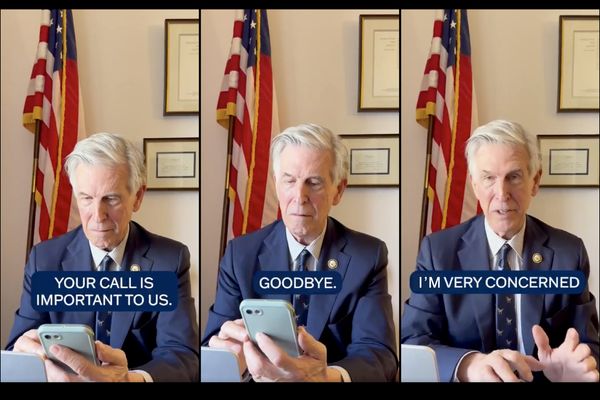
A senior inspector in charge of the search for a Gomeroi man who drowned in a river has told the inquest into his death the police search was called off before officers knew all of the details.
Inspector Helen McWilliam coordinated the search for 22-year-old Gordon Copeland, who drowned in the Gwydir River in the early hours of 10 July 2021. Police called off the search after three days, and his body was not found until authorities reopened the search three months later in October after sustained community pressure.
His family had not stopped searching for him.
The NSW coroner is examining his death, and counsel assisting, Peggy Dwyer, told the inquest Copeland went into the water after police followed the vehicle in which he was a passenger, mistakenly thinking it was stolen.
McWilliam told the court she was called in after junior police officers said that “someone” may have been in the river.
On Tuesday, the inquest heard that senior officers noticed the morning after Copeland went into the river – after police began to have concerns about his welfare – that there were differences between the statements given by officers on duty.
Dwyer read from McWilliam’s statement, which said she had received a text message from an inspector based in Armidale who had been notified of the search and had concerns about differing statements about the characteristics of the person in the river. The inspector had called multiple resources to assist their search efforts, including the SES and police dogs.
When asked by Dwyer if there was anything “suspicious” about the differing recorded statements she responded “no”, saying it was due to the inexperience of the young police officers involved in the initial search.
“My staff here are junior, very junior, and it wasn’t suspicious,” she told the court.
“It’s just that everyone had adrenaline, it’s cold, they’ve been out there for hours and it’s probably just that someone needs to step in and get the correct version,” McWilliam told Dwyer.
McWilliam told the court she drove to the scene that morning and recorded further statements from Constables Crystal Manusu and Kobe Russell on the riverbank at about 7.50am in response to queries about their differing statements. McWilliam said she did not speak to Constable Nick Murray at the river.
Dwyer reminded the court that Murray had said in evidence last week he had searched and called out for approximately 20 minutes before seeing “a head” bobbing in the water. Murray said he urged the person to try to reach him, but the person was then swept away down the river bend.
McWilliam said she had not been told this information prior to attending the scene.
McWilliam told the court she specifically asked Russell about the gender of the person in the river.
“I specifically asked him [Russell] because the description was going to be paramount. I asked him and he specifically told me he could not see if [the person] was male or female, but assumed by the sound he heard it was male, which said to me he did not get sight of a person,” McWilliam said in court.
McWilliam said the river was fast flowing, “wider than usual”. It had not yet breached the flood limit, but there was a lot of debris such as tree branches and shrubs in the river.
Last week the inquest heard authorities called off the search because they thought there were only two occupants in the car, one non-Indigenous male and an Indigenous female. But the inquest has heard evidence that Murray later said in his statement that he saw a “young Aboriginal male” in the river.
The court heard that several hours on from the incident, McWilliam was still trying to ascertain how many people were in the vehicle. At just after 9am, officers were still not sure how many people were in the car.
McWilliam said she did not read the officers’ statements before the search was called off at about 11.30am on 11 July 2021.
“My priority was getting to the river so I had not read [them] prior to leaving the station,” she told the inquest.
In response to questioning by Dwyer, McWilliam later said if she had known all of the information contained in statements, the search would have continued.
Dwyer then read out a statement from Murray who gave evidence last week that he had seen a young “Aboriginal male” who looked “frightened”.
Dwyer: “If you’d had that information, there is no way that search would have been called off at midday, would it?”
McWilliam replied: “No.”
She then told the inquest that when they were conducting a search, they had to know exactly who was missing.
“To conduct a search, you’ve got to have someone who is missing, you’ve got to know, are we looking for someone? Who are we looking for?
“So could we have stayed at the river for longer with this information, while further inquiries were undertaken? The answer to that would be yes.”
When Dwyer asked whether, if authorities had continued their search, it would have eased some of the Copeland family’s anguish, McWilliam responded that it would have comforted the family.
“If we had continued on that Saturday knowing what we know now, of course it would have been some solace to the family in what were some absolutely tragic circumstances,” McWilliam said.
The inquest is expected to hear from Copeland’s family as the inquiry enters its final days.







